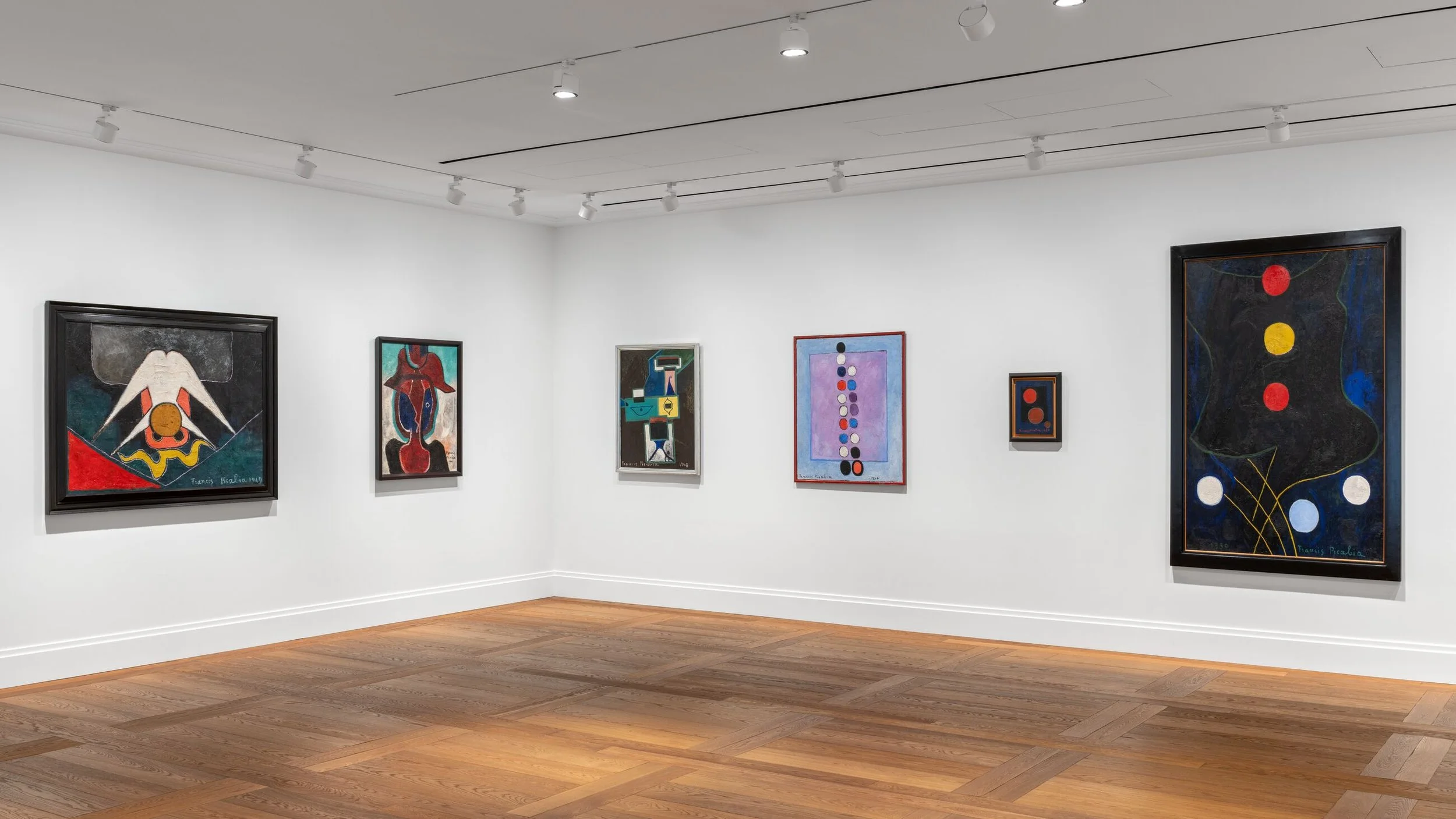FRANCIS PICABIA: ÉTERNEL RECOMMENCEMENT / ETERNAL BEGINNING
Hauser & Wirth Paris is pleased to present Éternel recommencement / Eternal Beginning, an exhibition of over 40 post-war artworks by Francis Picabia.
January 18 - March 12, 2025
Often overshadowed by other periods of his oeuvre, Picabia’s last series saw the artist abandon his famous wartime Nudes, coupled with a particular interest in surface texture and new sources of inspiration. Characteristic of Picabia’s restless artistic talent, these paintings represent his own definitions of nonfigurative art, creating a new visual language which distinctly sets this bold group of works apart from anything he had done before.
The final phase of Picabia’s work, whose prolific career was marked by a ‘complex alternation of styles and techniques’ (Arnauld Pierre), is reflective of an unprecedented visual language and a singular approach to abstraction. This period testifies to the artist’s unwavering commitment to a core principle, a method that has persisted through all his transformations: the use of pre-existing visual material. This material was drawn either from a vast collection of images or from his own earlier paintings, which he continued to revisit.
In 1945, Picabia returned to Paris, facing challenging economic and artistic circumstances and needing a fresh start. The painter appeared to return to the Dada ‘anti-painting’ ethos of the past. The most striking examples of this resurgence are found in his Points series, which were controversially reviewed by critics. Works include ‘Silence’ (1949) or ‘Six points’ (1949), in which a handful of dots—resembling a constellation—is set against a monochrome background subtly clouded by surface effects, resembling turbulent currents or signs of wear and tear.
Picabia’s collection of imagery was not restricted to distant geographical sources. Catalan Romanesque art, along with prehistory, were among the artist’s favorite inspirations. His borrowings also included ‘selfborrowings,’ as seen in his repainted works, such as ‘Elle danse (She Dances)’ (1948). Picabia also appropriated words, often drawing on Nietzsche for his titles. Examples include ‘Cherchez d’abord votre Orphée ! (First Seek Your Orpheus!)’ (1948) and ‘Le négateur du hasard [?] (The Denier Of Chance [?])’ (1946), both inspired by ‘Le Gai Savoir.’ This approach is hardly surprising—until the very end of his life, Picabia made his own rules when it came to aesthetics.’


